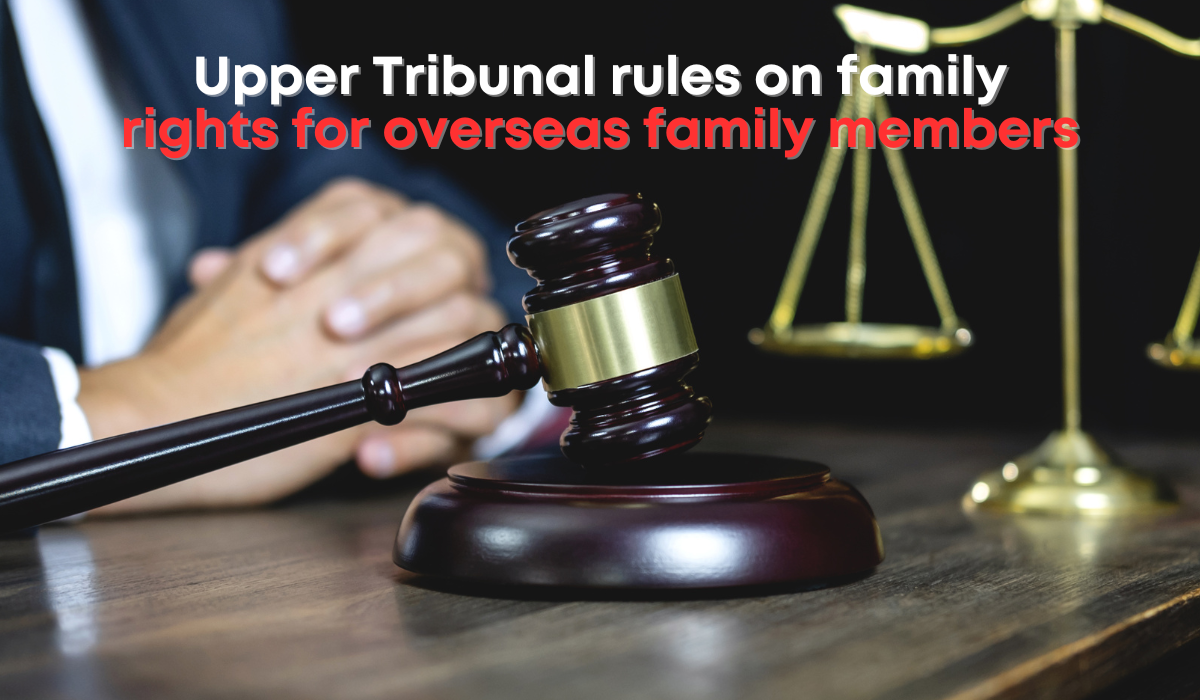In a significant legal development, the Upper Tribunal has clarified the application of Article 8 of the European Convention on Human Rights (ECHR) in cases involving overseas family members. This decision underscores the necessity of considering the rights of all family members involved, not just those residing in the United Kingdom. The ruling has potential implications for how immigration authorities and courts approach cases of family reunification, particularly in situations where family members are separated by national borders.
The case at the heart of this ruling involves a Syrian family seeking entry clearance to the UK to reunite with a sponsor, Ms. Al-Helwani, who had been residing in the UK since 2014. The family members, who had fled the conflict in Syria and were living in Jordan, applied for entry clearance to join Ms. Al-Helwani in the UK. Their applications were initially refused on the grounds that they did not meet the immigration rules, and the refusal was deemed not to breach their Article 8 rights under the ECHR.
The First-tier Tribunal, in its initial review, acknowledged that there were “more than normal emotional ties” between the family members, and that refusal of entry clearance would significantly interfere with their Article 8 rights. However, the tribunal ultimately dismissed the appeal, concluding that the interference was not disproportionate.
The Upper Tribunal’s ruling: A reassessment of family life for overseas family members
The Upper Tribunal granted permission to appeal, and in its ruling, it offered a critical reassessment of how Article 8 should be applied in such cases. The Tribunal emphasised that the right to family life is not confined to the individual residing in the UK (the sponsor), but extends to all family members, regardless of their location. This reflects a more holistic understanding of family life, consistent with previous rulings, such as the Court of Appeal’s decision in Secretary of State for the Home Department v Abbas [2017] EWCA Civ 1393.
The Tribunal rejected the notion, previously upheld in KF (Syria), that Article 8 rights should only be engaged for those physically present in the UK. This narrower interpretation had led to a focus solely on the rights of the UK-based sponsor, neglecting the rights of family members abroad. The Upper Tribunal’s decision marks a significant shift, recognizing that an interference with the family life of one member affects the entire family unit, regardless of where each member resides.
Implications of the Decision: A Broader Perspective on Human Rights
The Tribunal’s decision has far-reaching implications for how immigration authorities and courts should approach cases involving family reunification. By acknowledging the rights of overseas family members under Article 8, the ruling sets a precedent for more comprehensive consideration of the impact of immigration decisions on entire families.
In this particular case, the Tribunal found that the initial refusal of entry clearance was disproportionate, given the severe risks faced by the family in Syria and Jordan, including the potential for refoulement (forced return to a country where they might face harm). The Tribunal highlighted the irrationality of the earlier decision to separate the family, given the serious threats to their safety and the acknowledged existence of strong family ties.
Looking Forward: A Shift in Family Reunification Cases
The ruling by the Upper Tribunal may signal a shift in how family reunification cases are assessed in the UK, particularly in situations where family members are living in dangerous or unstable environments. It reinforces the principle that the protection of family life under Article 8 must consider all members of the family, not just those within UK borders.
This decision could also influence the way the Home Office and the courts handle similar cases in the future, potentially leading to a more humane and legally consistent approach to family reunification. It serves as a reminder that immigration decisions must be made with a full understanding of their impact on the rights and lives of all family members, especially those most vulnerable to harm.
Conclusion: A Landmark Decision for Family Rights
The Upper Tribunal’s ruling in Al Hassan is a landmark decision that reaffirms the importance of considering the family unit as a whole in immigration cases. By overturning the narrow interpretation of Article 8 rights that had been applied in previous cases, the Tribunal has paved the way for more equitable treatment of families seeking reunification in the UK. As this decision becomes integrated into the broader body of immigration law, it holds the potential to bring about more just outcomes for families separated by borders, offering them a greater chance to live together in safety and security.
Get in touch: For a comprehensive understanding of your options or queries on UK immigration matters, contact GigaLegal Solicitors at 02074067654 or click here to book a no-obligation consultation with an immigration expert.


